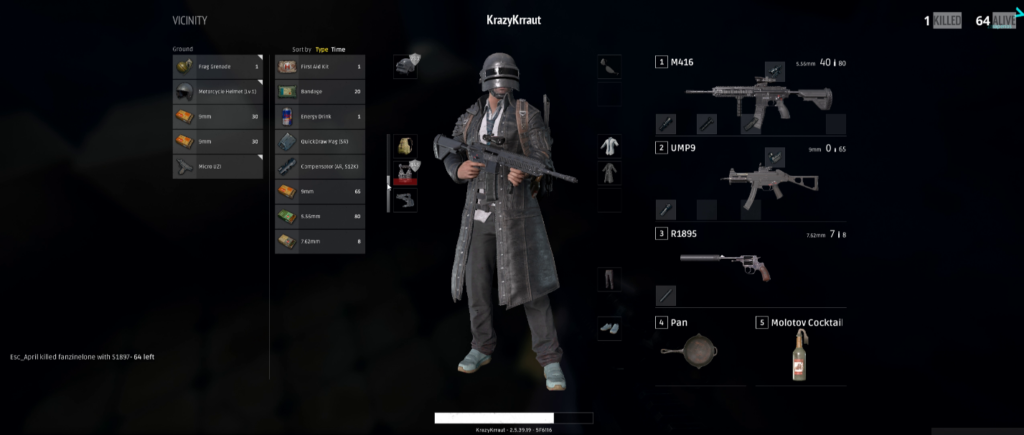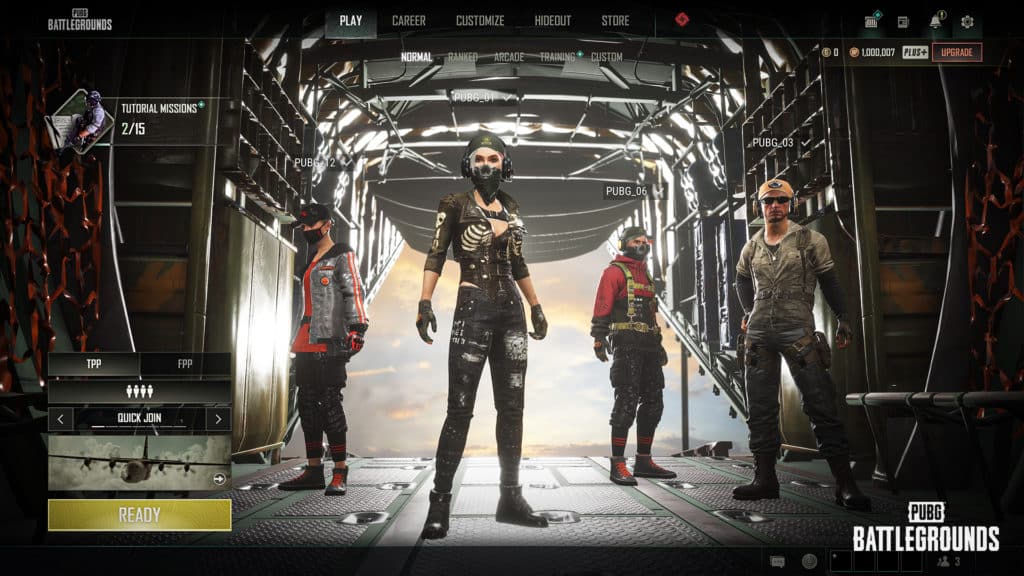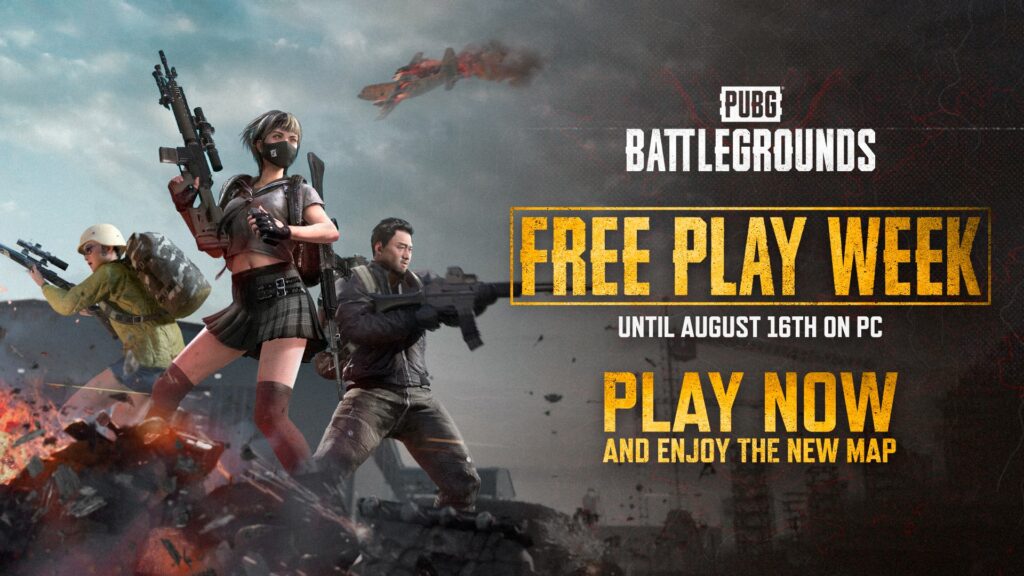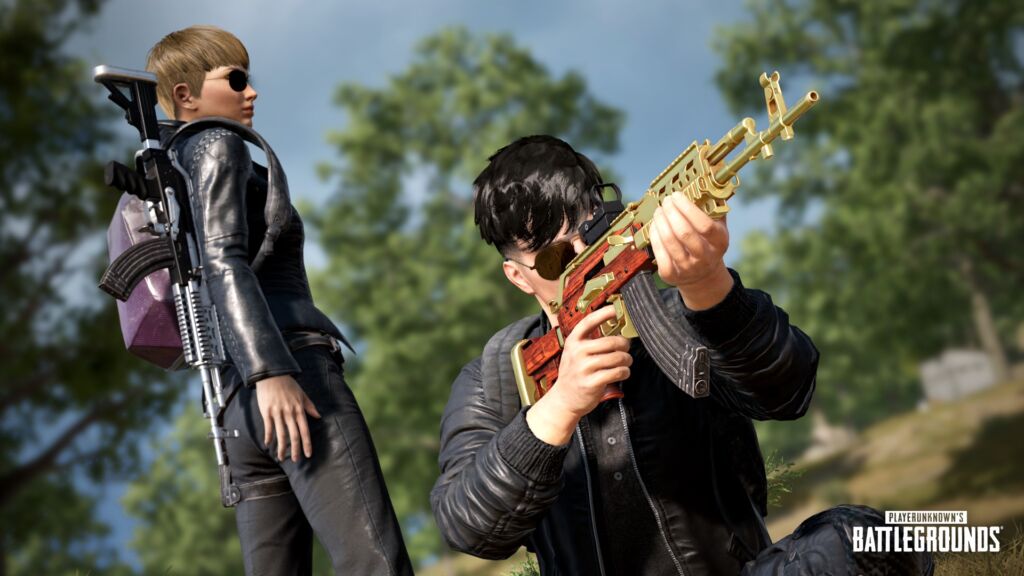As of now, I have poured over 150 hours into PlayerUnknown’s Battlegrounds according to Steam. I’m sure more than half of that time is spent wandering, looting, hiding, and ultimately in death while spectating your fellow squad trying to survive— unless of course you play solo.
When not playing video games, I often watch gaming related content on YouTube; sometimes just as background noise, other times to actually watch something with my eyes glued to the screen. Recently though, I’ve seen a surge of popular YouTubers hopping on the PUBG wagon, even those that are specifically dedicated to other games like CS:GO, which made me ponder: “Wait, how or when did I find out about this game again?”
Traditionally speaking in the context of gaming we get: trailers, screenshots, articles, early reviews, and just word of mouth for exposure. While those still apply to PUBG, they actually came pretty late. The game has been out on Steam on Early Access since March 23, 2017, and it didn’t catch much attention until much later where it completely blew up, reaching the frontpage of most gaming sites with tags of why the game needs to experienced. Other than that, it received its fair share of drama with how the developers handle stream sniping (basically people watch game streams to determine an opponent’s location), whether it’s morally right to ban people just because the developers are currently incapable of fixing the known, and the unjust advantage that seem to plague the game. Other bugs such invisible level geometry allows players to see through walls and take advantage of it have also been known to be banned, despite them not triggering the bug itself.
To get to the point: it seems that it was the streamers all along who helped popularize this game (potentially the genre it created). Even now, there are games that have been modded to include a battle royale-esque mode, which recently caused another controversy with Epic Games’ Fortnite (2017) where it seems that even suits are getting involved since there are financial complexities that may yet arise. Oh, and apparently there are Chinese advertisements in-game now.
Well then, why is it that I, or any other average PUBG player think the game is worth it? I mean, WE are the reason why the game is gaining more and more popularity after all. Us players enjoy it, then we tell others to go get it—play it with us. The cycle repeats, the game community grows in return, then you start wondering why a game like PUBG is becoming more popular? Yes, we already answered it on a surface level, with the previous paragraphs above, but to us personally, it’s a bit more specific than that. After all, I think that PUBG’s gameplay mechanics and feel aren’t too refined or even well done.
Optimization right now is garbage even with a GTX 1080 graphics card; the feel of firing a weapon is passable (melee weapons aside from the frying pan are utterly useless at this point), the game heavily relies more on luck rather than skills, and even though I sometimes partake in casual silliness online, the community is excessively immature.
Even so, we keep coming to it. Which made me compile a short list of why (I believe) the average PUBG player keeps coming back, thus exposing the game more despite its flaws.
Suspense
You versus 99 other people, why is it a big deal? Other games have huge multiplayer maps where many people duke it out right? Well, in PUBG it is important to note that you are basically investing a fair amount of time that you may or may not be okay with if it goes to waste. If you die once, you’re out. That’s it, back to the main menu. Imagine surviving for quite some time with the best equipment while positioned in an optimal location, all while feeling the dread of having it all relinquished from you—suddenly the stakes are sky high. You start to feel more invested in the situation, which goes back to what I said about time investment. When gamers are emotionally involved, and care about what’s going on in the game world, the immersion factor is raised which gives meaning to the situation currently transpiring.
Superiority Complex over an Intangible Goal (The Chicken Dinner)
What do you gain from finishing a match in PUBG? Some currency to buy randomized crates with cosmetics in them. Alright, what if you actually win a match? Well, more currency, that’s about it—and well that WIN rating/counter gets increased by a point, but we all know the real prize for getting a Chicken Dinner in PUBG—to screenshot it and post it on social media. Got to get those likes to validate your actions after all.
Risk-Taking Behavior
Should I stay or should I go? Similarly, to someone with a gambling addiction, do the risks outweigh the consequences? When I (or we) jettison out of the plane, do we pick a safe spot? Or do we go in combat heavy and immediately aim to get an early game advantage? Just like my opinion about suspense, there is a certain emotional investment when gambling with your chances. No doubt it is quite rewarding to pull off a crazy stunt and come out successful since it creates memorable scenarios that people upload online for many to share. If a player feels the pressure to not fail since he can’t respawn immediately, it disrupts the mental cycle of a person who does not make a constant conscious effort while playing.
Randomization is fair (?)
This topic is a bit controversial. I have asked a few individuals, and it’s downright 50/50 for this one more or less. Some believe that since everything is randomized, it can’t be unfair at all since everyone starts out equally, and your victory or defeat boils down to the choices you make. Others however believe the notion that since nothing is certain, it is impossible to fully strategize at all; the first one to be lucky and land on a safe spot with high-end weapons will pretty much get far. As for what I believe in: I’d say, randomization is more on the unfair side. At times skills do not really matter, since 90% of my deaths pretty much come from a guy with a sniper + suppressor combo shooting from a distance; at that point there isn’t much you can do. Even so, being on the lucky side can really give an adrenaline boost to your power fantasy of besting everyone around you—and this is exactly the kind of high a lot of players crave when they’re in the zone.
The Blue Death is the best part of the game
When I first of heard of PUBG I thought: “Man, the game must be boring, it’s probably littered with nothing but campers”. I’m glad that I was so wrong. While the game CAN be a drag, that will all depend on how you play it. Thankfully, the Blue Death (and bomb drops) ensures that game periodically gets back on track. The map essentially shrinks in size, killing off people outside it. To me, if the Blue Death didn’t exist then this game would have completely fallen flat.
There you have it. The reason why I believe PUBG is popular, and why many other games try to mimic its feel. I am aware that this isn’t the first game that started this evolving genre, but it is the most polished one so far, despite being in early access. If you haven’t bought the game yet, and this article intrigued you, I would suggest checking out some video reviews and other gameplay footages on YouTube, because I believe that for the price you pay for this game, it is totally worth it. Happy hunting!











